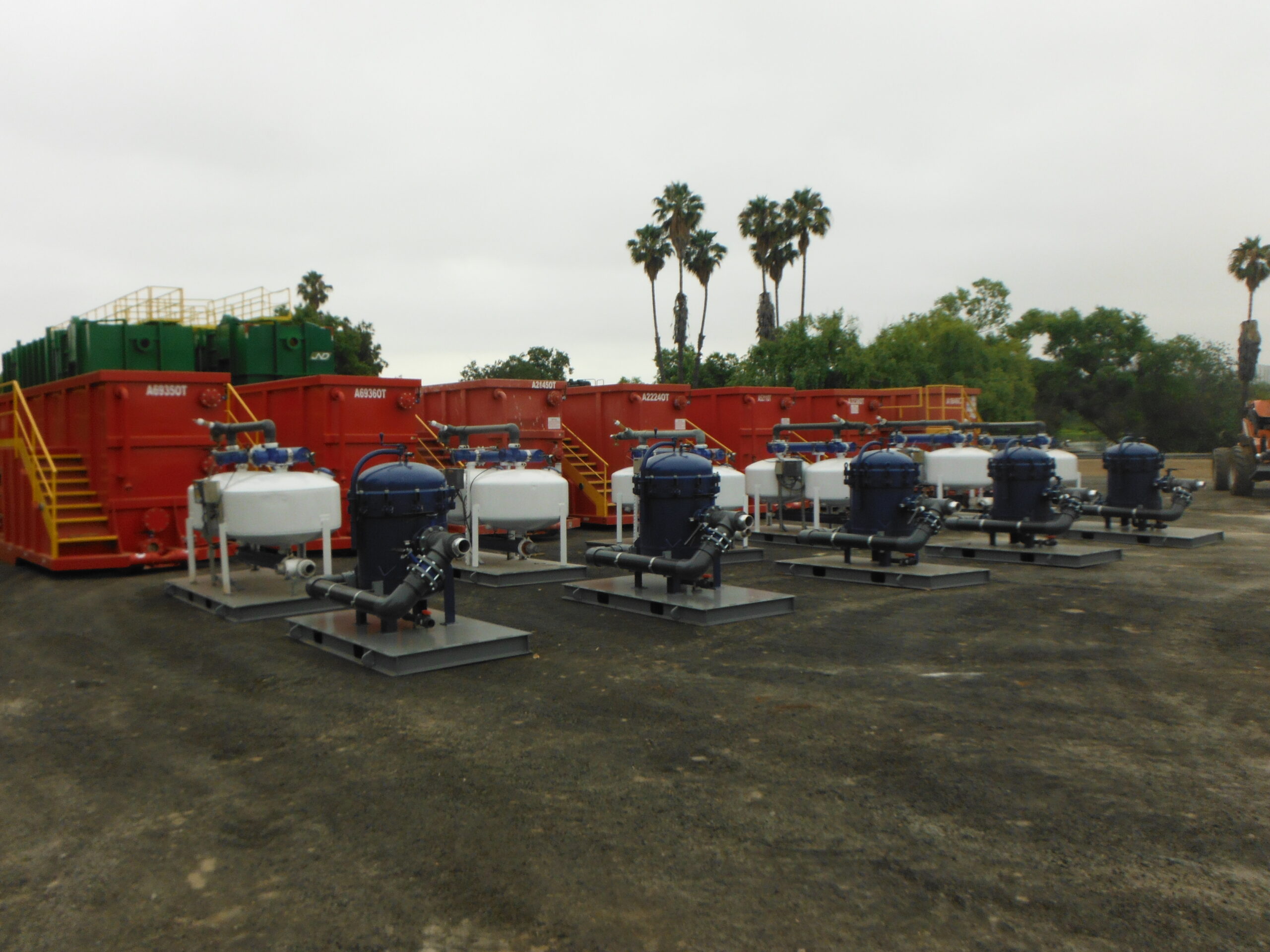Construction Dewatering Treatment Systems

Understanding Construction Dewatering
Treatment Systems
Typically, the purpose of construction dewatering treatment is to dewater the flow rate while meeting all the requirements of the discharge permit. It is the process which is used to extract and remove the groundwater or surface water from the construction site. Experienced and professional dewatering contractors perform the temporary construction water treatment, which is essential for many types of construction projects. If you are looking to build elevator shafts, bridge piers, sub-surface parking structures, and more – dewatering plays an integral role to make it happen effectively.
If we talk about the exact process of dewatering treatment system, it includes the installation of dewatering treatment equipment around the perimeter of the site, for groundwater extraction. The goal is to draw down the surface water until contractors reach soil in the dry state. The dewatering treatment system will keep on pumping the groundwater until the structure can be constructed. Usually, temporary water treatment systems are supposed to stay intact for at least two to three weeks, ensuring that the structure will not float and the waterproofing would not leak.
Apart from this, many dewatering contractors make use of pumps to extract and remove the contaminated water from the underground. The groundwater that is observed from dewatering tends to be contaminated with different bacteria that require effective treatment.
This happens with the majority of construction or remediation project site, where it is critical to perform excavation or any other subsurface work before moving on to construction. However, the need for dewatering contractors depends on the type of groundwater there is after excavation. Clean water can be immediately discharged while contaminated water may require some treatment prior to discharge. The process involved in the removal of contaminated water is temporary water treatment systems treatment or long term water treatment systems. Thus, it is essential to plan beforehand, what is required and how you plan on to get the treatment done as the costs vary on the basis of work required.
As discussed earlier, dewatering plays an important role in the success of jobsites. In addition to this, it is essential to excavate and remove it, which will help you to safely perform a number of tasks. Thus, selecting experienced dewatering contractors is necessary to ensure that they are well aware of all applicable laws, rules, and regulations required to safely perform dewatering plan while not affecting the environment. It is understood that the dewatering issues vary from place to place; therefore, one should clearly consider all factors before designing a plan.
An experienced Dewatering Pump Rental Company will ensure that an effective Dewatering Treatment System is implemented and installed for the best results. Make sure to select the dewatering treatment equipment that fulfills all requirements to discharge into the storm drain system.
There are other discharge and disposal options available as well in the market, to effectively remove the contaminated water from the subsurface such as off-site disposal, land disposal, discharge to the sanitary sewer system, and the reinjection of groundwater into the water table. One of the most used and effective disposal options is NPDES permit.
The dewatering treatment system is available for purchase as well as for rent, depending on the need. The applications of construction dewatering treatment systems include:
- Construction
- Industrial Wastewater
- Infrastructure Improvements and Repairs
- Manufacturing
- Oil and Gas Industries
- Portable Water Development
- Stormwater




You must be logged in to post a comment.